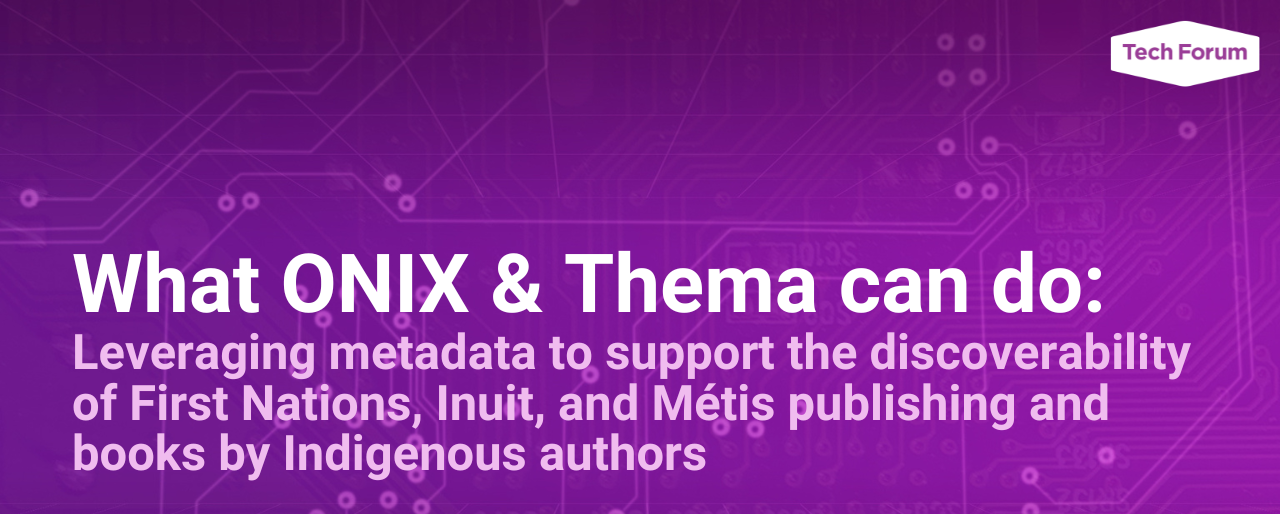At BookNet, metadata is at the core of what we do. With so much of it flowing in and out of our products and services, we’ve seen it all. In this blog series, we'll share each of the common issues addressed in Improving your metadata: Common issues and how to fix them the Tech Forum presentation where eight BookNetters walk you through some of the most common issues we see in publishers’ metadata, highlighting what metadata standards are recommended for each case and showing you how to fix these common problems.
Why is this important? Accurate, high-quality metadata ensures that your books are seen and that they succeed in today’s competitive marketplace. Join us as we help you optimize your metadata and unlock its full potential!
The issue: Not providing enough data for people to understand your products
Image source: michaeljswart.com
While seemingly straightforward, this issue can greatly impact how well your books are discovered and sold, especially in today's online marketplace.
Think about it: Publishers have a wealth of knowledge about their authors and other contributors, and the books that they produce. The challenge lies in effectively communicating this information throughout the entire book supply chain, from sales representatives, booksellers, wholesalers, libraries and, most importantly, consumers. The further your book gets from your publishing house, the more your data needs to speak for itself.
Why is this an issue?
While sales reps may have extensive knowledge about the books they sell and their key selling points, it becomes increasingly difficult to communicate this information downstream, especially considering the time limitations, booksellers, for example, have to research a particular book.
At the consumer level, the challenge intensifies. With so many books available and consumers often browsing or searching online without interacting with a bookseller, metadata becomes even more essential. We continue to see a proliferation of online booksellers in the Canadian market where a store's online listings can, in most cases, only be as useful and detailed as the data the retailer receives from publishers.
What BookNet recommends
1. Embrace standards:
Standards ensure supply chain partners — publishers, wholesalers, distributors, and retailers — use a common language to describe books. The structure of standards also allows systems like catalogues and retailer shops to organize titles in logical ways and support search and filter mechanisms. Commonly used standards are likely familiar, and include:
ISBN: assigned to each specific edition of a book
subject coding systems: BISAC, Thema, and Dewey subject codes are all used in Canada
person and organization identifiers: ISNI is a newer standard that is gaining adoption
ONIX: The standard for communicating all of this information and more throughout the supply chain
2. Take control of your data:
It’s important to know who's creating the metadata about your books and how it’s being distributed. If you're not managing your ONIX files, ask your distributor or data provider what fields they support and ensure that you're providing as much of that data to them as you can.
If you have the capacity, you can explore options for sending your own data feeds to supplement those distributor data feeds. If you have a relatively small number of titles or you don't have a distributor, there are some inexpensive tools available that can help you create ONIX feeds. BookNet's Webform is one available option, but there are other similar tools out there.
You can also supply additional non-ONIX content like interior images, excerpts, teacher's guides, and reading guides directly to your data trading partners. BiblioShare, for example, accepts all of those, and that can increase the availability of that content in the market. You can learn more about this here.
3. Utilize new and updated data points:
Stay informed about new or updated standards. For example, ONIX has recently added better support for communicating data about a book's accessibility features, and BISAC has been working to address some identified gaps in terminology and representation of Indigenous communities and world views.
BookNet makes it easy to keep up to date on the latest standards and industry news.
4. Make a sustainable, long-term plan:
If you have an extensive backlist, it's okay to focus on adding support for new fields on your forthcoming lists or increasing support generally on what's available for forthcoming titles and work through your backlist as much as it makes sense to do. Focus on core backlist as you're able to do it. There may be tools available to help implement support for new standards. For example, you can use a conversion tool like the BISAC to Thema translator.
5. Leverage available resources:
BookNet Canada represents the Canadian book industry in international standards committees and hosts the Bibliographic Committee. Explore our resources on the blog, user documentation, and in our Tech Forum educational series (including the presentation that inspired this blog series, Improving your metadata: Common issues and how to fix them) for more insights and practical tips.
Need help? Don't hesitate to reach out to the BookNet team with your questions.
The complete slide deck and transcript from this session are available here.
To stay up to date, subscribe to our weekly newsletter, eNews, where we share news about upcoming events and webinars, infographics and new research, updates on industry standards, links round-ups, and more.















James Christie on today’s business climate and its effects on the implementation of sustainable, inclusive practices.